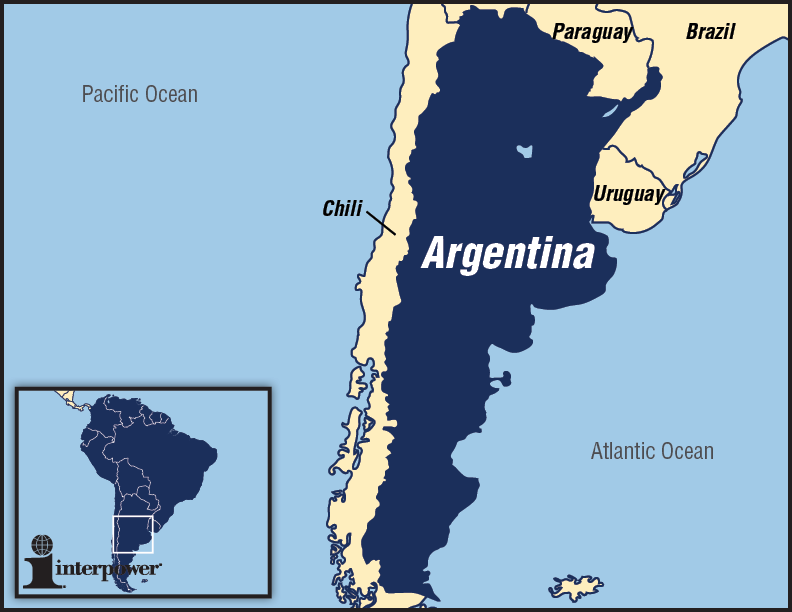Exporting to Argentina
Posted on 12/21/15 12:00 AM

| ARGENTINA | |
|---|---|
| Actual population* | Population world ranking |
| 43,024,374 | 33 |
| Actual GDP (PPP)* | GDP world ranking |
| $771,000,000,000 | 23 |
| Actual GDP (per capita)* | GDP (per capita) world ranking |
| $18,600 | 75 |
*See the end of this blog for definitions
As one of the largest countries in South America, Argentina can be an important global market with good business opportunities. Argentina is a country with distinct cultural features that makes it unique from other Latin American countries.
Extensive market research and due diligence are necessary for a company’s success. Working with local agents or representatives can be beneficial because they can assist in the best ways to market a company’s product due to knowing the local business climate. Another important element to consider is promotion. Other recommendations include being present at and/or displaying at local and regional trade shows. A variety of resources available to assist in learning about market entry strategies include the United States Commercial Service and the United Kingdom Trade and Investment.
Establishing personal relationships are essential as Argentines prefer to do business with people they know. Courtesy and developing trust are two essential characteristics in creating these business partnerships. Knowledge of the dress code, how to greet people, and how to begin a business discussion are all important elements. Have an introduction through an intermediary rather than calling a company directly. Be on time to meetings and have a good supply of business cards. The cards should be bilingual. For more information, among the sources to consult are the United States Commercial Service and United Kingdom Trade and Investment.
Learn the country’s customs requirements. In Argentina, the Customs General Directorate is an agency which is a part of the AFIP (Federal Administration of Public Revenue) that is responsible for the import/export process.
Argentina is a member of the World Trade Organization and the World Customs Organization. It is also a member of MERCOSUR, the Southern Common Market.
The official language in Argentina is Spanish. While many also speak English and other European languages, hire a quality interpreter for all meetings as business is usually conducted in Spanish. Written documents may need to be translated by a certified public translator.
In Argentina, the voltage used is 220V with 50Hz. The most frequently specified plug pattern is the Argentina plug.
Sources:
www.export.gov/argentina
www.gov.uk
www.afip.gob.ar/english
www.wto.org
www.wcoomd.org
www.mercosur.int
*Source: www.cia.gov/library/publications/the-world-factbook/index.html
Country comparison—Population: Population compares estimates from the US Bureau of Census based on statistics from population censuses, vital statistics, registration systems, or sample surveys pertaining to the recent past and on assumptions about future trends. (July 2014 est.)
Country comparison—GDP (Purchasing Power Parity): GDP (purchasing power parity [PPP]) compares the gross domestic product (GDP) or value of all final goods and services produced within a nation in a given year. A nation’s GDP at PPP exchange rates is the sum value of all goods and services produced in the country valued at prices prevailing in the United States. (2013 est.)
Country comparison—GDP – per capita (PPP): GDP – per capita (PPP) compares GDP on a purchasing parity basis divided by population as of 1 July for the same year. (2013 est.)




